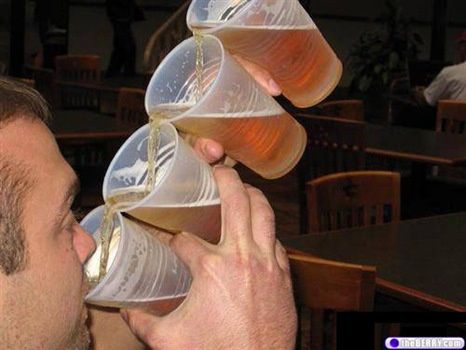Are You (Or Your Pets) Good Candidates For Drug Rehab?
When dealing with drug and alcohol addiction, it is often said that the first step to recovery is admitting you have a problem. It can also be said that the first step to admitting you have a problem is recognizing the signs of addiction in yourself. Unfortunately, many addicts lie to themselves and downplay the reality of their addiction. Here are some simple steps that can help you recognize an addiction in yourself.
When it comes to substance abuse, a number of basic addiction symptoms tend to show up repeatedly across the board. While these don’t cover all the bases, they offer a pretty reliable early indication of addiction:
-
You engage in substance use or drinking as a means to escape the realities of your life, whether those are boredom, stress, sadness, fear, and so on.
-
-
You find yourself engaging in substance use or drinking with increasing frequency over time.
-
-
You are frequently concerned about making sure you have a supply of your choice substance close by and cannot focus on anything else until you do.
-
-
Giving in to your urges to engage in substance use or drinking leads to an immediate feeling of comfort or security (which can be soon followed by remorse).
-
-
You’ve engaged in substance use or drinking even at the risk of damaging important things in your life like your career, your relationship, and your ambitions.
-
-
You have already tried to stop the behavior but found that you were unable to do so.
-
-
You find your personal goals and interests changing. For example, you lose interest in your hobbies or stop using your gym membership.
-
-
When faced with any kind of daily hardship or setback, your first instinct is to turn to substances or alcohol.
If you found yourself relating to a lot of these symptoms, you may very well be dealing with an addiction. Now it’s time to formally take inventory of yourself and your life.
Serious addiction problems are the product of many factors but a common thread between addicts is the inability to “self-soothe” oneself from the effects of depression, anger, loneliness, stress, and more. Substance abuse and drinking offer a means to cheat the treatment of these troubling feelings by manipulating the brain and often numbing the mind to the effects of these problems. Unfortunately, drugs and alcohol can potentially make rapid changes to the brain, and the addict loses the ability to soothe oneself without them which can quickly lead to a downward spiral of addiction.
Apart from the self-soothing problems, there are more traits shared by addicts that can help you recognize an addiction in yourself. These are not symptoms of an addiction but rather traits that might hint at a predisposition to addiction:
-
A family history of alcohol and/or substance abuse. Although there is no definitive data on the precise influences of genetics and environment on an addiction, it is commonly accepted that a family history of addiction makes you more likely to succumb to addiction yourself.
-
-
History of mental illness in yourself or your family. Substance and alcohol abuse can often have a particularly strong effect on people with any traces of mental illness, often resulting in the rapid onset of addiction.
-
-
Lingering untreated physical pain. Just as substance and alcohol abuse are often used to numb mental pain, they are just as easily used to numb physical ailments. People living with a high degree of physical pain, such as serious back problems, often slip into an addiction by simply trying to keep their pain at bay.
One of the most dangerous enablers of substance and alcohol abuse is denial. As an addiction grows stronger, the mind automatically seeks to rationalize the addiction in any way possible, making it very possible for you to convince yourself that you don’t have a problem at all.
Denial may begin as an attempt to hide your addiction from others; however, once you’re using it to rationalize your own addiction to yourself, you’ve started to surrender to the pervading feeling of powerlessness that accompanies addiction. In order to get yourself on the right path, you’ll need to convince yourself that you will eventually be able to assert control over your addiction and that you are not ruled by it.
This can be scary because in declaring your intent to assert control, you must start to prepare yourself for a potentially long and difficult battle with your demons. Fortunately, there’s no reason to fight that battle alone. Addiction programs and drug rehab centers are available everywhere as a way to help you make good on your commitment to bettering yourself. Your first step can begin today.
Stop suffering with addiction! Located a few minutes from the US border and one hour from Montreal, Canada, Heritage Home Drug and Alcohol Rehabilitation Center offers a tranquil and therapeutic environment to begin your recovery from alcohol and drug addiction. Their team has worked together in drug rehab for many years and will give you a personal, unique, and individualized approach to emotional healing and sobriety.
If you’re suffering with addiction check’em out! ~ Michele






